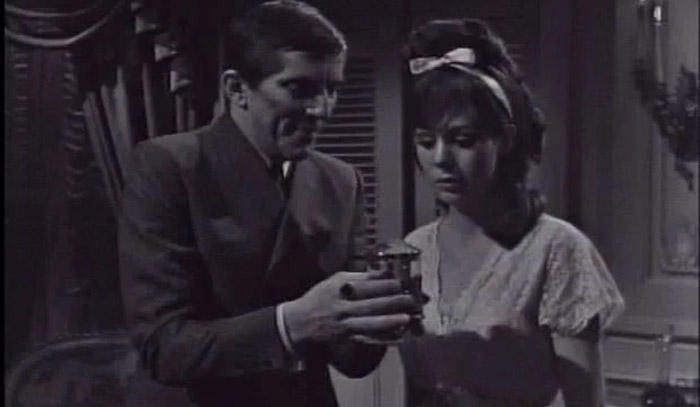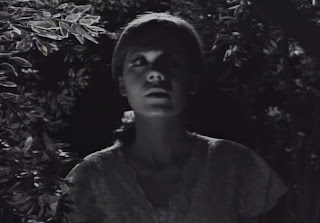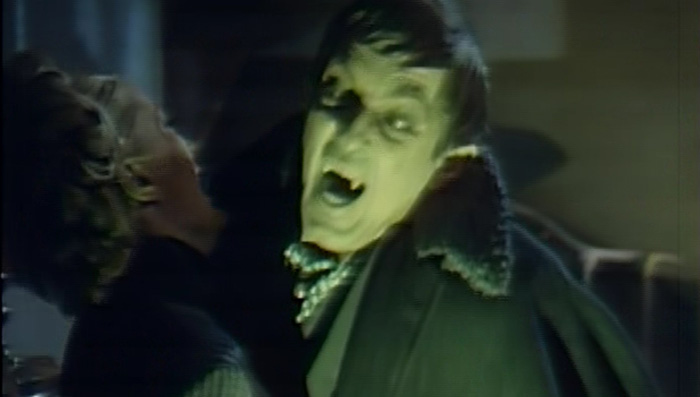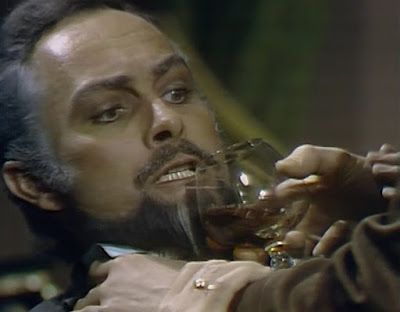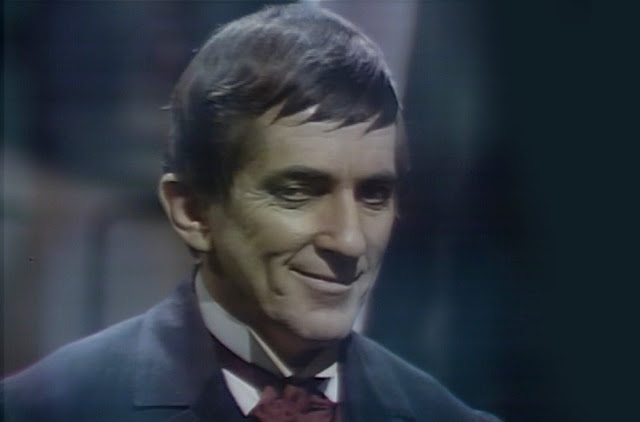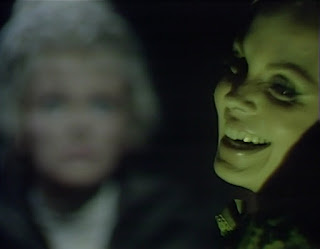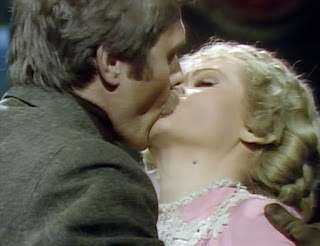By PATRICK McCRAY
Taped on this day in 1967: Episode 236
When Barnabas has the chance to deprogram Josette from thinking herself to be a Twentieth Century diner waitress, will he be thwarted by Joe’s plan to keep her in rags? Maggie: Kathryn Leigh Scott. (Repeat; 30 min.)
Showing amazing and inevitable power, Barnabas kidnaps Maggie from her hospital room after she is on the brink of death. Joe, Sam, and Burke investigate at the Old House, but Maggie stays hidden. Afterward, Barnabas begins his hypnotic conversion of Maggie to Josette.
This is why we love Dark Shadows. This is also an exquisite example of a note that no one could sustain. It’s a poignant, black gem of fear. Not of the would-be victim’s fear of injury. No, it’s the would-be villain’s fear of loss. The question is, “Did this change horror and the genre’s moral compass forever?”
In its structure, it does the job of both horror and romance, which is to slide us out of the real world and into a realm of new rules but no rulebook. From hospital to cemetery to the Old House drawing room to the aspirational honesty in Josette’s bedroom, we progress from a medical bed of science and truth to a sumptuous memory palace of a bed-chamber where the truth is whatever we want more than anything… without hearing the dissent of reality that might break the spell.
Why does Dark Shadows work? This is why. It reorients the horror audience to openly value what they only secretly admired: the quest of monsters to become gods, retaining their resplendent anti-humanity while enjoying the richest fruits of emotional fulfillment. We don’t root for Maggie to escape as much as we hope that Barnabas succeeds. Maggie’s life is far blander than even our own, and what would we not give to be the prized gem of someone with the keys to Tiffany’s? It’s high time Maggie hung up the apron and donned the finery of a most elegant age. Why not be adored?
And what keeps Barnabas from being a kidnapping stalker? Or simply being a kidnapping stalker? There’s a lot, and those things are what cements the uniqueness of the show and explains its success. By introducing Laura and Barnabas and the ghost of Josette, the show establishes that mortality is not just a one-way, seventy-five year trip in Collinsport. It’s completely possible for something in the present to not just look like a thing from the past, but to be that thing from the past. Every time that Barnabas looks at himself in the sketch based on the mirror, he sees this.
So, could Maggie be some form of Josette? Given her exactish resemblance to the ghost of said, I would say yes. The show backs me up on this.
Once you have seen the 1795 flashback, you’re robbing yourself if you choose to ignore it when viewing these early episodes. It may not have been part of the production up to that point, but it does become a part of the overall story, and to subsequently avoid it is like chipping the chocolate off Raisinets.
Barnabas may be right for other reasons. Whether or not we know about the persistent Collins physical DNA. Or Parallel Time. Or the nearly half-dozen methods the show establishes for time travel. Once we look back on this over the shoulders of Jeff Clark, the most amazing method is simply the act of loving enough and in the right way. And it is poetically correct.
Much has been said about Jonathan Frid’s performance… the courtliness, the lack of open eros, the performer’s own fear that bled into the scenes. Let us match or exceed those claims with praise for his professionalism. It is the supreme mandate to the actor to be truthful, moment to moment. Part of that is to forbid anticipating endings and telegraphing the message. Villains and heroes only exist through the eyes of audience members. A villain has often laudable goals… to the villain. Barnabas is on a search-and-rescue to take someone from the real world and convince her that she’s a princess. And not as a practical joke.
That’s what Frid is playing, sincerely, moment by moment. He just accompanies that with a ruthlessness that matches the stakes of his pursuit. He comes from an era when people burned cats in gunnysacks for amusement and saw nothing unusual in the practice. Putting Maggie in a gunnysack as a dress? That’s nothing.
As Barnabas announces his old world plan to Maggie, the new world Joe’s bewilderment, Sam’s desperation, and Burke’s hardheadedness loses a lot of luster. He offers something positive other than more-of-the-same with a hearty side of pregnancy-based body dysmorphia crowned with an unhealthy dollop of irreversible aging.
This was a decadently noir romance before Hot Topic and Torrid brought the concept into elegant respectability. Dan Curtis and Ron Sproat went to the heart of what their key demographic wanted, and they did so ten-to-forty years before Joss Whedon, Anne Rice, Stephanie Meyers, and other people whose names I’m glad to have forgotten. It’s not enough to be desired. You must be desired by the antithesis of the guy who should worship you, and yet he doesn’t. If Barnabas were any more antithetical to the Schlitz-swilling husbands of 1967 middle America, he’d be a woman. And in his own way, he comes awfully close.
Which may be the ultimate secret. Perhaps the first wave of fans did not want woman, but they wanted a man, for once, to treat them as they would treat the object of their affections. Barnabas dotes, but he does so in ways that provide him with no immediate, sensory gratification. He is giving her what she ostensibly values, not to advertise what he values on her. Millions of women have asked for that for centuries. One vampire listened.
This episode hit the airwaves on May 22, 1967

